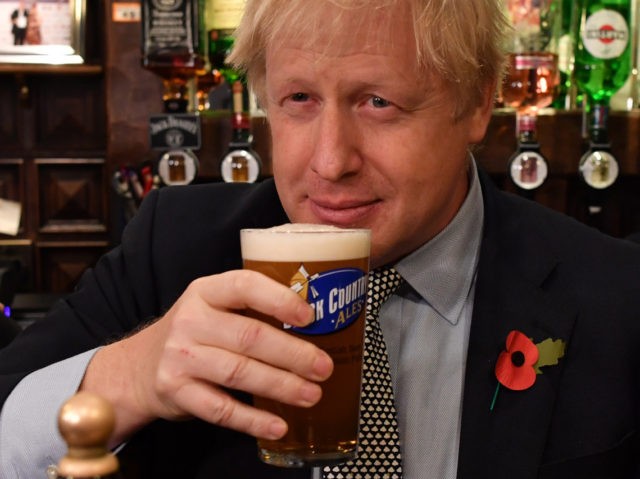Boris Johnson’s Conservatives have polled 14 points clear of their nearest rivals, the increasingly hard-left Labour party of Jeremy Corbyn, his best-projected result since the election was called in October.
The YouGov poll conducted on behalf of Sky News put the presently governing Tories on 42 per cent, while Labour languished behind on 28 per cent. Nigel Farage’s Brexit Party, who have gained praise this week for standing down their candidates in over 300 seats to give the Conservatives a clear run to prevent anti-Brexit parties gaining a foothold posted their worst poll rating since their foundation earlier this year at four per cent.
The 14 point lead is the strongest for the Conservatives since a Times poll of October 30th, the day Parliament voted to hold the December general election, and the 42 point share is the highest outright score for the Prime Minister since he became Conservative leader.
Mr Johnson’s performance in the polls has generally been strong compared to Theresa May after the last general election was called in 2017 — during that period the Tory predicted vote fell sharply while Labour’s rose, almost catching up by polling day. By contrast, while Labour’s predicted vote has grown slightly during the 2019 election period it has not come close to touching the Conservatives, which has risen in aggregate from the low to high 30s, and even touching the low 40s on average during the same period.
The Conservatives appear to have benefited particularly from the leadership of Boris Johnson, the most striking growth in their polling having come since he assumed office in July 2019.
It is not clear to what extent the latest polling figures may be a false friend to the Conservatives, however, with the national vote share not necessarily being a reliable indicator of how many seats are returned to Parliament — the actual indicator of the victor, as this dictates who is able to form a government.
Theresa May won 42 per cent of the vote in the 2017 general election — the same outcome being predicted for Boris Johnson today — but lost 13 seats and failed to win a majority, an outcome that arguably did more than anything else to frustrate Brexit as it gave pro-remain elements in Parliament disproportionate power over proceedings.
That result compares sharply with the significantly lower 37 per cent vote share won by David Cameron in 2015, but which led to an unexpected landslide victory. In both cases, the actual result was less informed by the total number of votes cast nationwide for various parties, but in which areas they were cast — just hundreds or even dozens of extra votes in key marginals proving capable of swinging the composition of Parliament one way or another.
This may be particularly pronounced in this election as challenger parties in the regions — the Scottish nationalists in North Britain, Liberal Democrats in the South West, and Brexit Party in the midlands sap votes away from the two traditional main parties.

COMMENTS
Please let us know if you're having issues with commenting.